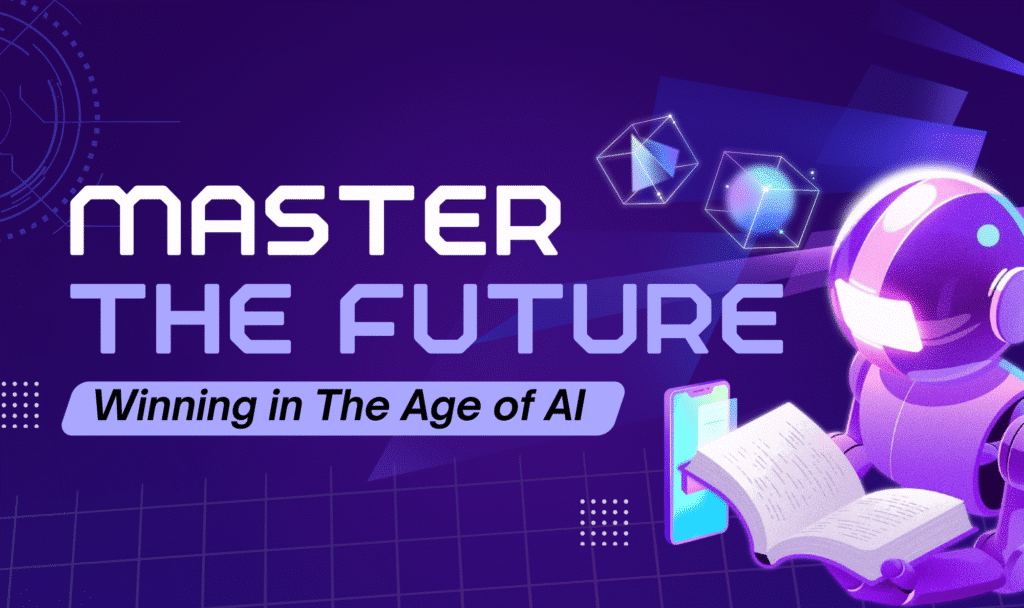In today’s digital world, computer education is not just an advantage — it’s a necessity. As technology continues to shape every sector, from education to business, learning the right digital skills can make the difference between being employable and being left behind. STP Computer Education has become one of the most searched and discussed topics among learners and job seekers in India, offering practical, career-focused computer training to empower individuals with essential tech knowledge.
This comprehensive article in Gyaan Duniya will explore everything about STP Computer Education — including its background, value, course offerings, benefits, applications, challenges, and future trends. If you’re planning to pursue a computer education course, this guide will help you make an informed decision.
What Is STP Computer Education?
STP Computer Education refers to a structured, skill-based training program offered by the STP Institute that focuses on building practical knowledge of software and computer technologies. Unlike traditional academic degrees, STP courses are designed for real-world applications — teaching students how to do rather than just know.
STP focuses on job-oriented training modules that are tailored for students, graduates, and working professionals. From basic computer literacy to advanced programming, STP Computer Education covers a wide range of areas that match today’s IT industry demands.
It is important to note that STP Computer Education is different from STPI (Software Technology Parks of India). While STPI promotes software exports and IT infrastructure, STP Computer Education focuses on individual learning and skill development in computing and software technologies.

The Core Values of STP Computer Education
The STP Computer Education system is built upon a few key educational values:
- Practical Learning Approach – Real-world training through live projects, assignments, and practical labs.
- Industry Alignment – Courses designed to meet current job market demands and evolving IT trends.
- Accessibility & Affordability – Affordable programs that enable students from diverse backgrounds to learn digital skills.
- Flexibility – Both online and offline modes, allowing learners to study at their own pace.
- Career Empowerment – Equipping learners to start careers in software development, IT support, or freelancing.
Courses and Applications of STP Computer Education
STP Computer Education offers a wide variety of short-term and long-term courses that focus on building core computing and software skills. Below are some popular course categories and their applications.
1. Basic Computer Skills
Perfect for beginners who are new to computers. These include:
- Computer fundamentals
- Typing and document formatting
- MS Office (Word, Excel, PowerPoint)
- Internet and email operations
Applications: Helps students, teachers, and office employees become digitally literate and efficient in daily computing tasks.
2. Programming & Software Development
For students aiming to become developers or coders.
Courses include:
- C, C++, Java, and Python programming
- Web development (HTML, CSS, JavaScript, PHP)
- Full-stack development (React, Node.js, MySQL)
Applications: Enables learners to build software applications, dynamic websites, and back-end systems.
3. Data Analytics and Database Management
This track focuses on analytical skills and database tools:
- Advanced Excel and Power BI
- SQL and relational database management
- Introduction to data visualization and analysis
Applications: Prepares learners for careers in data entry, data analysis, and reporting in the business and finance sectors.
4. Networking and IT Infrastructure
Designed for students interested in hardware, networking, and system management.
- Computer hardware maintenance
- Networking basics (LAN, WAN, routers, switches)
- CCNA fundamentals
- Cloud computing introduction
Applications: Opens paths to careers as network administrators, IT technicians, and support engineers.
5. Cybersecurity & QA Testing
For learners aiming to secure systems or ensure software quality.
- Cybersecurity essentials
- Ethical hacking basics
- Software testing and QA automation
Applications: Suitable for roles in system security, testing, and IT support.
6. Emerging Technologies
To keep up with modern IT trends, STP also offers courses in:
- Artificial Intelligence (AI) and Machine Learning (ML)
- Cloud technologies (AWS, Azure)
- DevOps basics
- Mobile app development
- Applications: Helps students transition into the future of technology-driven careers.
Key Advantages of STP Computer Education
STP Computer Education offers several advantages that make it a preferred choice for many learners:
- Job-Ready Curriculum: Every course is designed to create job-ready candidates with industry-relevant skills.
- Hands-On Training: Students practice directly on computers instead of only learning theory.
- Experienced Trainers: Trainers with industry experience provide mentorship and guidance.
- Placement Support: Many institutes offer placement assistance, resume preparation, and interview training.
- Recognized Certification: Students receive certificates that can enhance their CVs and improve job opportunities.
- Affordable and Accessible: Fees are generally lower than degree programs, and classes are available both online and offline.
Current Trends in Computer Education in India
The IT industry in India is changing rapidly, and so are educational approaches. Below are some of the key trends influencing STP Computer Education today:
- Microlearning and Short-Term Certifications: Learners prefer small, skill-specific courses over long programs.
- AI Integration: Basic AI and data analysis modules are being added to mainstream courses.
- Hybrid Learning Models: Students can now combine online theory sessions with offline practical training.
- Freelance and Entrepreneurship Focus: Many learners use STP courses to become freelancers or small business owners.
- Soft Skill Development: Alongside technical skills, STP courses increasingly emphasize communication, teamwork, and problem-solving.
Challenges in Computer Education (and How STP Overcomes Them)
Every learning system faces challenges, and computer education is no exception. Here’s how STP Computer Education addresses them:
1. Outdated Syllabi
Challenge: Many traditional institutions still teach outdated software and tools.
STP Solution: Regular curriculum updates ensure the inclusion of modern programming languages and tools.
2. Lack of Practical Exposure
Challenge: Students often know theory but cannot apply it.
STP Solution: Real-world projects, internships, and practical labs help students learn by doing.
3. Skill-to-Job Gap
Challenge: Many graduates struggle to find relevant jobs.
STP Solution: STP bridges this gap by teaching exactly what employers demand — coding, networking, analytics, and software tools.
4. Accessibility & Cost
Challenge: Quality education is often expensive.
STP Solution: STP provides affordable and short-term programs, making quality IT education accessible to everyone.
Measuring Success and Quality in STP Education
STP Computer Education institutes maintain quality and track student progress through several methods:
- Regular Assessments: Periodic tests and assignments measure learning outcomes.
- Capstone Projects: Each student must complete a real-world project before certification.
- Portfolio Building: Learners are encouraged to create GitHub portfolios showcasing their coding and design work.
- Alumni Feedback: Continuous feedback from past students and employers helps STP improve its course structure.
Career Opportunities After STP Computer Education
Completing a course under STP Computer Education can open multiple career paths depending on your chosen specialization.
- Software Developer – Design, code, and deploy applications for businesses or personal projects.
- Web Developer – Build and maintain websites and web applications.
- Data Analyst – Interpret data to support business decisions.
- IT Support Executive – Manage technical support and IT infrastructure.
- Network Administrator – Handle routers, switches, and enterprise connectivity.
- Cybersecurity Assistant – Protect digital systems from security threats.
- Freelancer / Entrepreneur – Offer tech services or start a digital agency.
With continuous learning, these roles can lead to senior positions such as Software Engineer, Project Manager, or IT Consultant.
How STP Computer Education Helps Build the Future Workforce
India’s IT workforce is growing, and skill-based education is the foundation of that growth. STP plays a critical role by making technical skills affordable and accessible. By focusing on hands-on learning, short-term results, and employability, STP Computer Education creates professionals ready to join the rapidly evolving digital economy.
Moreover, the emphasis on practical application and up-to-date technology makes STP graduates more confident and adaptable — two qualities every modern employer values.
Frequently Asked Questions (FAQs)
Q1. What is the duration of STP Computer Education courses?
Most short-term courses last between 3 to 6 months, while advanced diploma programs may take up to a year.
Q2. Are STP certificates recognized for jobs?
es, certificates from reputed STP institutes are recognized by many companies as valid proof of computer literacy and skill.
Q3. Can I learn programming without a background in computer science?
Absolutely! STP offers beginner-friendly programming courses that start from the basics.
Q4. Does STP provide online classes?
Yes, most STP institutes now provide both online and hybrid (online + offline) options.
Q5. What are the job opportunities after completing a course?
Graduates can work as software developers, web designers, network technicians, or IT support specialists.
Q6. How much does it cost to study at STP Computer Education?
Fees vary by course and location, but most short-term certifications are affordable and provide high value for money.
Conclusion About Software Technology Parks (STP)
STP Computer Education stands out as a powerful platform for individuals who want to build or upgrade their digital skills quickly and effectively. It bridges the gap between academic knowledge and industry requirements through practical, real-world training.
From programming to networking, from cybersecurity to AI — STP’s curriculum covers every essential aspect of modern IT education. As India continues its digital transformation, institutions like STP are shaping the next generation of skilled professionals who can contribute to the global tech industry.
If you are looking to future-proof your career, now is the perfect time to explore STP Computer Education. Choose a course that matches your goals, learn passionately, and let technology open new doors of opportunity for you.








